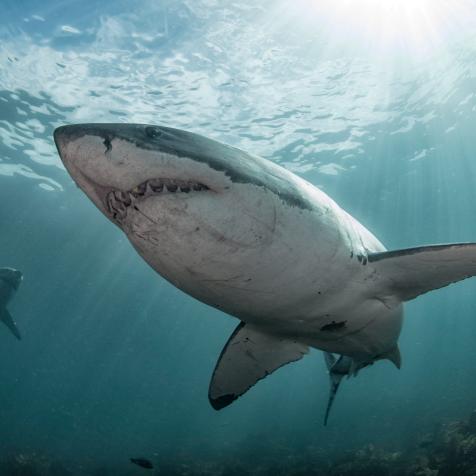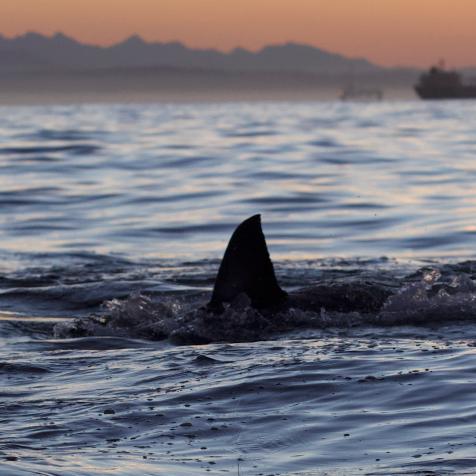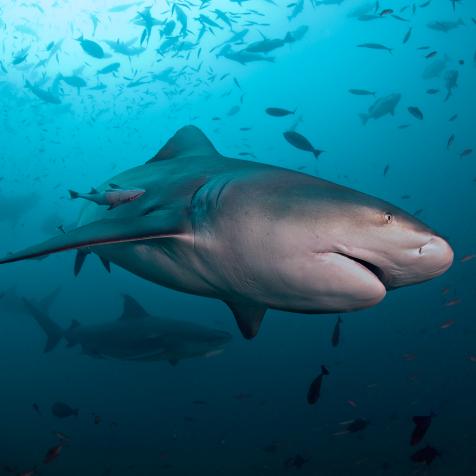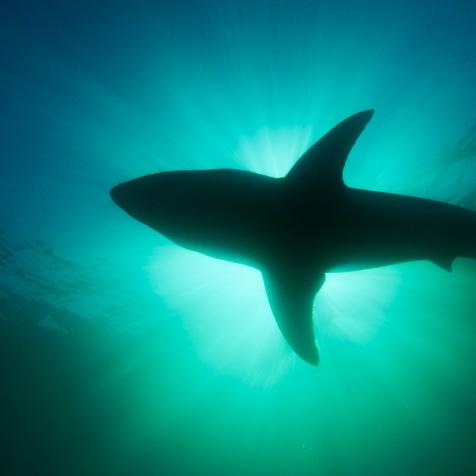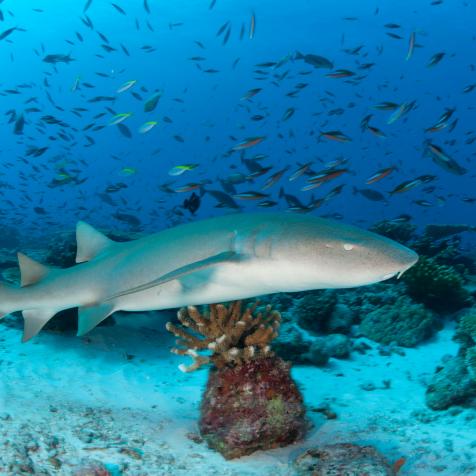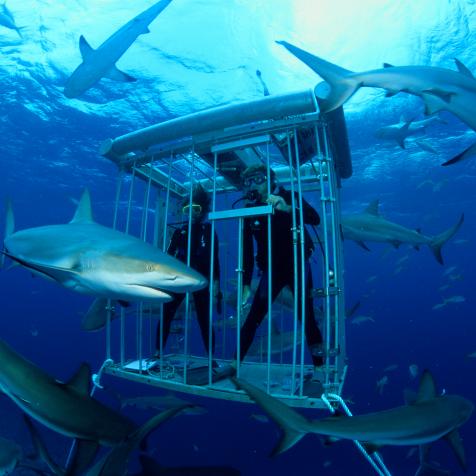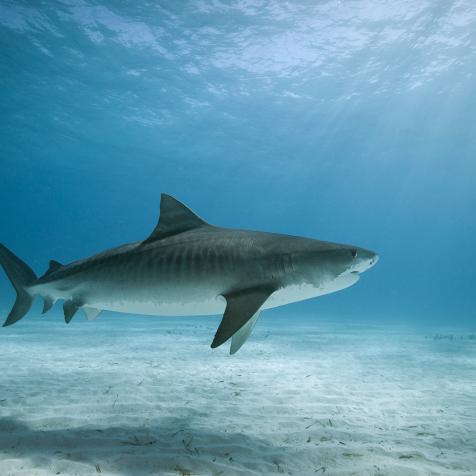
Curiosity Daily Podcast: Foods to Curb Sleep Deprivation, Light Levels Affect How Cold You Feel, and Kangaroo Pouches
Learn about why the amount of light you see affects how cold you feel; what’s inside a kangaroo’s pouch; and, foods that can curb the effects of sleep deprivation.
November 12, 2019
Episode Show Notes:
Please vote for Curiosity Daily in the 2019 Discover Pods Awards! We're a finalist for Best Technology & Science Podcast. Every vote counts! https://awards.discoverpods.com/finalists/
In this podcast, Cody Gough and Ashley Hamer discuss the following stories from Curiosity.com to help you get smarter and learn something new in just a few minutes:
- What's Inside a Kangaroo's Pouch? — https://curiosity.im/2WIzlLg
- Healthy Food Can Curb the Effects of Sleep Deprivation — https://curiosity.im/32aDloL
Additional Sources:
- Low Levels Of Daylight Make Cool Temperatures Feel Even More Uncomfortable | The British Psychological Society — https://digest.bps.org.uk/2019/10/23/low-levels-of-daylight-make-cool-temperatures-feel-even-more-uncomfortable/#more-38257
- Daylight affects human thermal perception | Nature — https://www.nature.com/articles/s41598-019-48963-y
See omnystudio.com/listener for privacy information.
Next Up
Shark Week: The Podcast - How To Have A Career in Shark Science
Shark Week’s Luke Tipple tackles the question “How can I work with sharks?” alongside two experts in the field – and their answers are not always the obvious ones. Luke is joined first by Kelly Link, Associate Curator of the Georgia Aquarium who talks about what it’s like to be an aquarist, how it differs from field work, and how to get yourself noticed. The second guest is Dr. Neil Hammerschlag who goes into detail on what it takes to become a prominent scientist, and what other paths you can take if a PhD isn’t for you. And at the end, researcher Sierra stops by to tell us about the world’s smallest shark.
Shark Week: The Podcast - Did Alien Tech Crash-Land into the Ocean?
Host Luke Tipple is joined this week by renowned Harvard professor, Dr. Avi Loeb, who recently led a deep-sea expedition to discover if evidence for advanced alien life crash-landed off the coast of Papua New Guinea in 2014. They discuss the recent Congressional UFO hearings, how the last seventy years of research into extraterrestrial life has been potentially misguided, and the challenges of searching for tiny objects on the bottom of the ocean.
Shark Week: The Podcast - Shipwrecked & Surrounded by Sharks
This week, we do things a little differently, as Shark Week’s Luke Tipple invites Adventure Aaron into the podcast studio to talk about his incredible near-death experience on the open water. Adventure Aaron gets into what it takes to circumnavigate the world in an ocean rowboat, what it’s like to stare eye-to-eye with an oceanic white tip that probably wants you for lunch, and everything else that happened to him when his boat was capsized, and he was lost by himself at sea.
Shark Week: The Podcast - How Smart Are Sharks?
The discussion turns this week to sharks’ intelligence, and how it varies among species. Host Luke Tipple is joined by Dr. Tristan Guttridge, a behavioral ecologist and veteran of Shark Week whose research has tackled the social smarts, and even personalities, of different kinds of sharks. He sheds light on why we shouldn’t just think of them as dumb fish with rows of razor-sharp teeth. And at the end, our researcher Sierra Kehoe tells us about shark hypnosis.
Shark Week: The Podcast - Do Scientists Need to Kill Sharks?
Host Luke Tipple welcomes two guests to discuss how researchers can kill sharks in the name of science – and whether they need to at all. The first is Dr. Neil Hammerschlag, shark researcher and founder of Atlantic Shark Expeditions, and an expert on data-gathering in the field. He’s followed by explorer Fred Buyle, a world-record-breaking freediver whose innovative methods of shark tagging are explored. Plus, our researcher Sierra tells us about how a 50-year study changed our understanding of tiger sharks – and much of the work wasn’t even done by scientists.
Shark Week: The Podcast - What is the Status of Sharks in our Oceans?
In this season’s final episode, Luke welcomes Emmy-winning filmmaker and conservationist Shawn Heinrichs to discuss the state of sharks in the ocean. They go over how both legal and illegal fishing operations are decimating the ocean’s wildlife, what it’s like to have a hit put out on you for exposing criminal enterprises to the world, and whether or not NOAA’s data on “sustainable” fishing can really be trusted.
Shark Week: The Podcast - Undiscovered Sharks and the State of the Ocean
Luke Tipple invites “The Lost Shark Guy,” Dr. Dave Ebert, who is personally responsible for finding dozens of shark species that were either previously unknown to science or thought to be extinct. He and Luke discuss why shark populations are a direct indicator of how healthy the ocean is, how to find undiscovered sharks, and why diversity in sharks is essential for marine life.
Shark Week: The Podcast - How Shark Fishing Funds Human Trafficking
Luke Tipple is joined by Pulitzer Prize-winning journalist and author of the Outlaw Ocean Ian Urbina, who has dedicated his life to chronicling crime on the high seas. They discuss the state of our world’s oceans, how nearly 20% of your seafood was likely caught illegally, and the surprising link between modern slavery and the killing of sharks.
Shark Week: The Podcast - Superstar Kesha Lifts the Gag Order on Saving Sharks
Pop superstar Kesha joins Shark Week’s Luke Tipple on the podcast to discuss her love of sharks, how her music funds her addiction to diving, and how you can find inner peace while under the water. And at the end, our researcher Sierra drops in to tell us that some sharks have teeth in their eyes.
Shark Week: The Podcast - How Did a Shark Encounter Survivor Become an Advocate for Their Protection?
Shark Week’s Luke Tipple welcomes professional photographer Mike Coots, who lost his leg to a tiger shark attack when he was only 18. But after his horrific injury, he came to love sharks, and became a lifelong advocate for their safety. Luke and Mike discuss his career, his love for photographing sharks, and how to positively approach the big life-changing moments that can happen to any of us.








